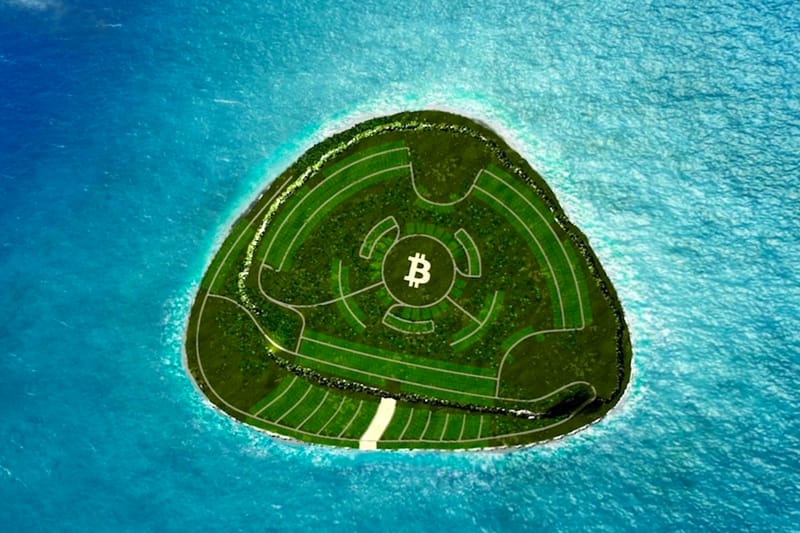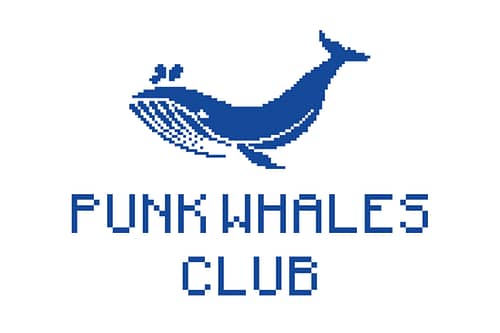When people talk about NFTs and Web3 creating new opportunities to interact with the world, many people’s first thought is creating a metaverse where you can immerse yourself in the digital world.
Satoshi Island, a patch of land in the South Pacific Ocean, subverts expectations by being a real-world destination focused on creating a community specifically for people enthusiastic about crypto and NFTs.
Еl Salvador may be the first nation to embrace Bitcoin, but some crypto enthusiasts claim they have nothing on Satoshi island that will be entirely dedicated to crypto and NFTs. NFT citizenship applications will be used for candidates, and according to reports, around 50 000 applications have already been sent.
The Satoshi Island team described the experience as “A true crypto-economy where everything will be paid for in crypto, and all ownership on the island is represented with NFTs.”
According to the news by the Satoshi Island team, “the island intends to host events all year round, house and headquarter crypto projects and be a gathering place for crypto enthusiasts worldwide.”
The island’s name comes from the famous name of the creator of Bitcoin, who started the blockchain revolution and popularised cryptocurrencies as an alternative form of payment.
So far, an island has been bought, building permits have been secured and 50, 000 digital visas were crafted for the most passionate crypto enthusiasts. Plans for the future include the possibility of ” operating as a decentralized autonomous organization.” and potentially starting their marketplace for NFTs.
50 000 sounds like a huge number, and some appear to be skeptical, but the Satoshi Island team confirms that “50,000 applications for our free Citizenship NFT, acting as a whitelist to enter our Land NFT sale, while also permitting the holder to live on the island with many other benefits.”
The skepticism of many comes after many other failed crypto utopias in the real world. Some of which included the CryptoLand and Fyre festival, which many considered to have ended as “catastrophic failures.”
Despite past hardships of similar projects, many are excited about Satoshi Island since the team behind it appears not only passionate but also competent to deliver a good product. The Satoshi Island project is not just a short-term campaign that hastily came together to get some money out of everybody’s current obsession with NFTs and crypto.
The vision for the island goes back to 2017. The Satoshi Island Team explains, “The concept started out as an idea to have a place for the crypto community to call home, and the actual island was chosen years after.” In fact, “it took many years to find the right island and to get everything together to be able to release to the public.”
Just looking at the way the Satoshi Island Team researched the project speaks of professionalism. First, they sought to buy an island that wouldn’t suffer heavily from climate change’s devastating consequences, which is a real concern. According to many, there’s currently a dip in the prices of islands, even if the prices are still massive because many feel insecure about their future due to rising sea levels.
Second, they have tried to find a balance between protecting the privacy of their citizens and not being too remote from the rest of the world. Third, the Satoshi Island team was looking for a government like El Salvado’s that would be receptive to their intentions.
The team believes they found a brilliant match with the government of Vanuatu, which “showed a willingness to innovate and were open to discussions right away.”
Vanuata is far from the only Pacific Island that has been friendly towards crypto technology. Tonga made Bitcoin a legal tender, and the Marshall Islands have allowed DAOs to operate on their territory.
Many see those moves by the island nations as strategic as they wish to be the first nations that take advantage of the massive rise in blockchain technology. According to many, web3, crypto, and NFTs will spread worldwide, so it’s all about which countries open their doors for investment first.
According to the Satoshi Island Team, “The minister of finance was already interested in the idea of a digital economy and using blockchain technology when we spoke to him, so he was very excited about the idea of having our company and many of the brilliant minds in our industry call Vanuatu home.”
The Vanuatu government has been suffering from natural disasters and economic hardship, so they were most likely incentivized by the lucrative opportunity to create a tech center and many job opportunities on the island.
Contrary to what many believe about NFTs and crypto, the Satoshi Island team has pledged to use technology for electricity and energy that is environmentally friendly. They have received support from the government to use the “latest and greatest sustainable technology” and have made plans to rely on solar power integrated into the homes to be built.
Residency is granted through a non-fungible token that will be minted on a blockchain. The company’s intentions are not to create a tourist destination but only to attract the most passionate crypto and NFT enthusiasts who have long-term intentions to remain on the island. Those who wish to contribute towards making it the “crypto capital of the world.”
Of course, not everything is sunny, even on this tropical island. Citizenship to Vanuatu will cost $130 000 because it doesn’t come directly through the approval of the Satoshi Island Team and the NFT residency they grant you.
According to the current plans, people will be able to live as residents by 2023, and an NFT marketplace is coming to support the physical and digital transactions that will be happening related to the island and the project.






